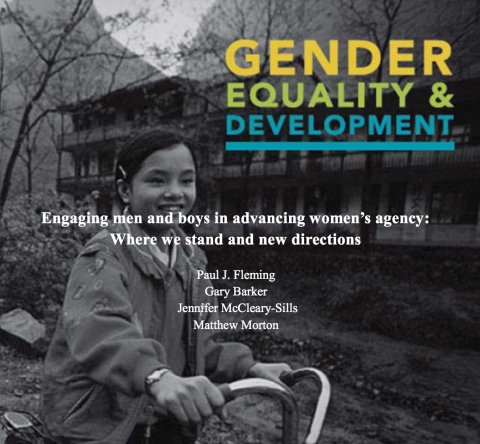
Despite advances in gender equality, women and girls still face disadvantages and limits on their agency. Men and women are both subject to gender norms that influence their behaviors and these norms can constrain women’s agency and can encourage men to adopt behaviors, including sometimes violent behaviors, which further constrain women’s agency. Men and boys can be key stakeholders and allies to increase women’s agency and this paper focuses on examining men’s attitudes and behaviors related to gender equality and violence perpetration to better understand how to engage men and boys as. To do so, we use data that were collected from men and women from eight countries (Bosnia, Brazil, Chile, Croatia, Democratic Republic of Congo, India, Mexico, and Rwanda) as part of the International Men and Gender Equality Survey (IMAGES). We found that there is wide variation across countries in men's support for gender equality, equal roles for men and women, and acceptability of violence against women. In multivariate analysis examining predictors of men ever perpetrating physical violence against a partner, we found that older age, witnessing partner violence against one’s mother, permissive attitudes towards violence against women, having inequitable attitudes, and having been involved in fights generally were all associated with a higher likelihood of perpetrating violence. A majority of men is willing to intervene if they witness violence against a woman, and men who do not support violence against women, are not violent generally, and are aware of laws prohibiting violence against women are more likely to intervene. We interpret these findings and identify key knowledge gaps and directions for future research, public policies, evaluation, and programming
Key findings:
- In most countries, male perpetrators of violence are more likely to be depressed or engage in binge drinking than non-perpetrators.
- Witnessing one’s mother being abused by a partner is one of the strongest predictors of ever perpetrating violence, suggesting that efforts should focus on breaking the intergenerational transmission of norms and violence.
- Being involved with violent fights generally is a significant predictor of ever perpetrating violence, suggesting that programs and policies reducing violence generally may also have an effect on violence specifically against women.
- A majority of men is willing to intervene upon witnessing violence against a woman, and men who do not support violence against women, are not violent generally, and who are aware of laws prohibiting violence against women are more likely to intervene.